It’s 3pm on a Friday, and the buzzing in your pocket indicates an incoming text: “Hey, we have room for an extra tent at our campsite tonight. Want to come?” Or a different scenario: You’re fed up with “real life” and need a little backcountry R and R to reset—right now. Or maybe planning ahead just isn’t your forte. Whatever the reason for your last-minute camping trip, here are 10 tips to ensure you’re as ready as possible when the opportunity pops up.
Stay flexible.
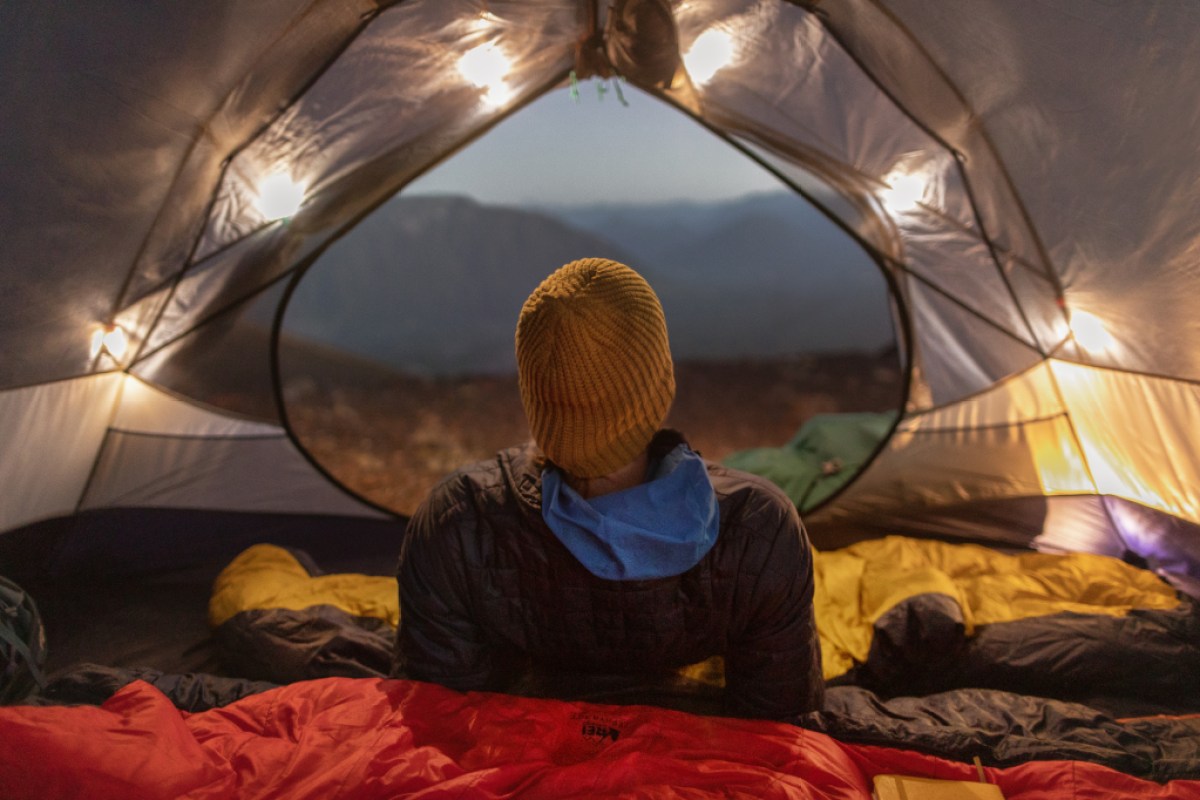
The idea has been hatched: “Let’s go camping!” But the dates, duration, location and gear assembly? All still TBD. Before diving any further into planning or packing, take a deep breath and adjust your attitude and expectations. You will likely have to make some compromises along the way, whether it’s where you go or how gourmet the menu will be. That’s OK, assuming you plan for safety (like packing your ten essentials and telling someone your plans). As the saying goes, “Don’t let perfect be the enemy of good”—or in this case, don’t let timing be the enemy of getting out in the woods.
Get creative when looking for a campsite.
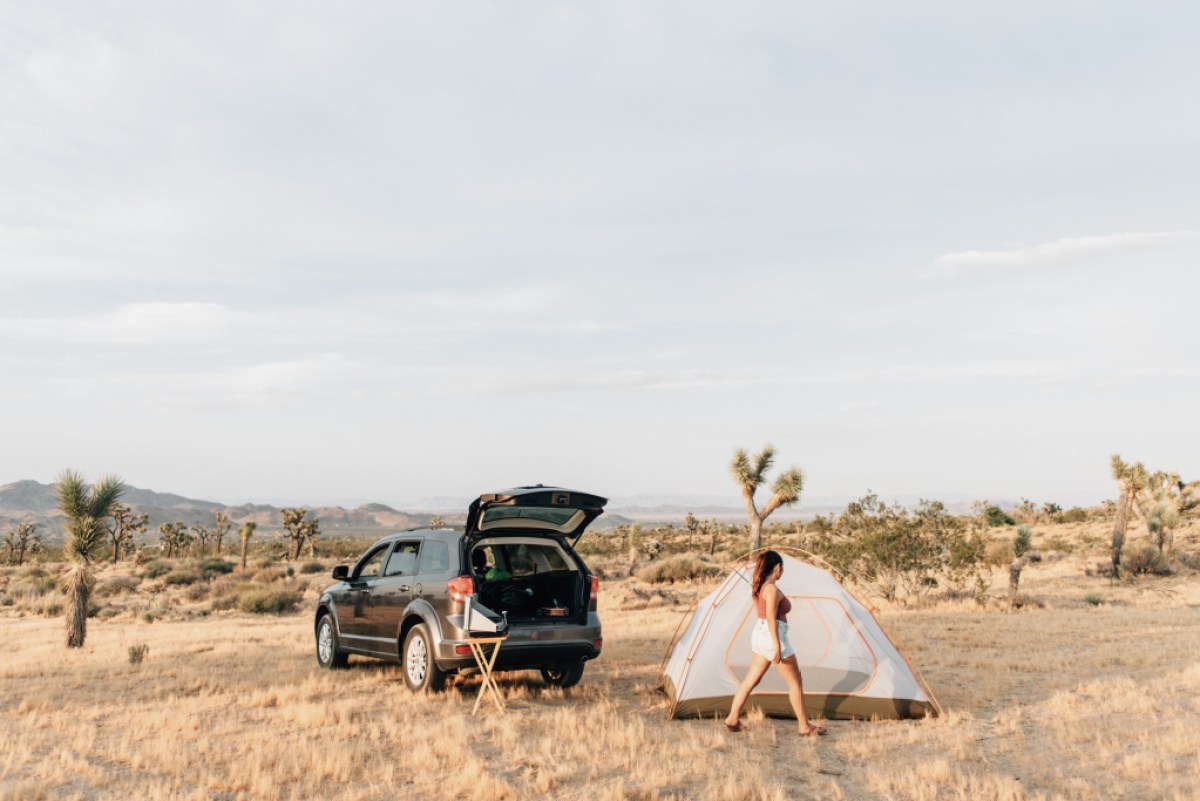
More and more people have started camping in the last several years. That’s great for a boatload of reasons: Camping improves our mental health, provides exercise and connection with the natural world, fosters relationship-building—the list goes on. But it most likely means the sites with the best views (and the ones upwind from the latrines) sold out months ago. So, in addition to checking availability in national and state park campgrounds, look into private campground options too. Online campsite aggregator Hipcamp serves up lists of tent sites and RV hookup spots—as well as rentable treehouses, yurts and even a geodesic dome or two—and is handy for sorting and searching by your particular preferences. You can also look into dispersed camping options on national forest and Bureau of Land Management (BLM) lands; just make sure to follow all rules and guidelines. (Here are BLM’s, for example.)
Camp when others aren’t.
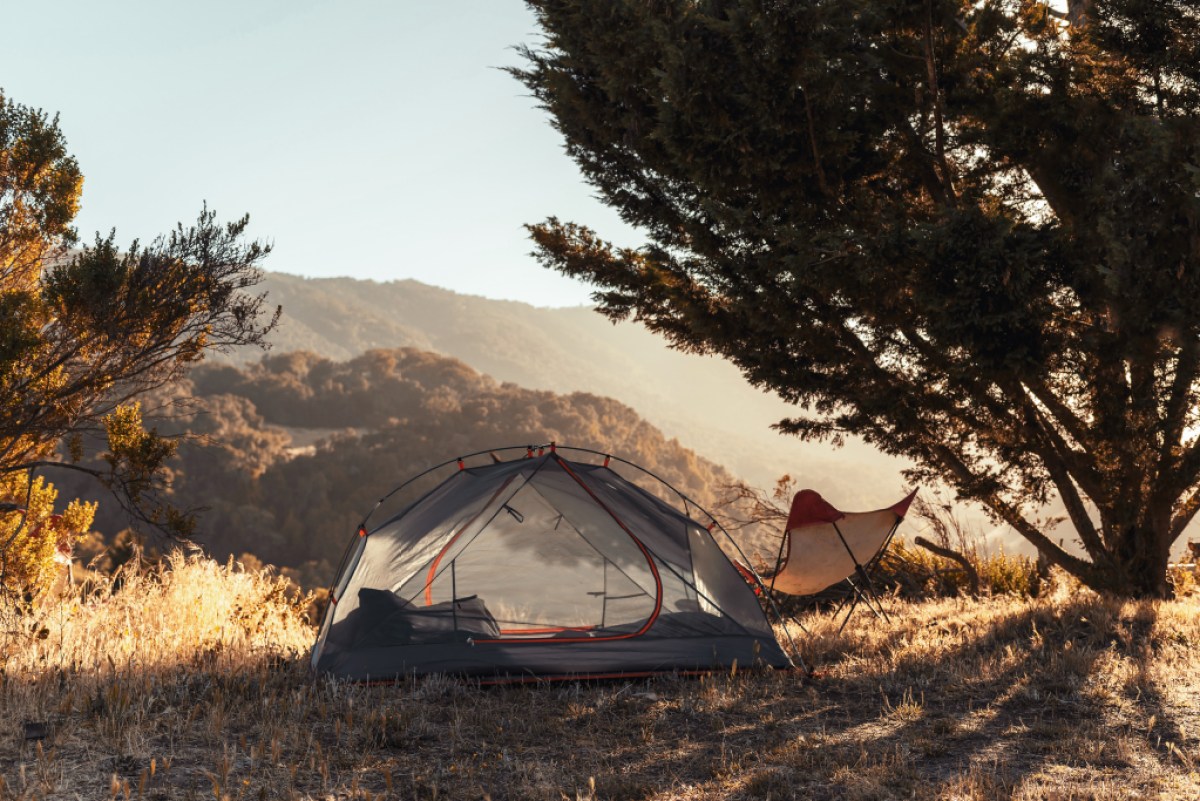
Weekends and national holidays might be your best days to escape the office and enjoy the outdoors. But as it turns out, those tend to be the best times for everyone else to go camping too. So if you have the ability to head out mid-week, do it. You’ll likely find far more options open to you. Even if a Tuesday-night trip is out of the question, sneaking away from your cubicle early on a Friday will give you better odds of snagging one of the first-come, first-served sites available at many campgrounds.
Make a packing list—and save it.
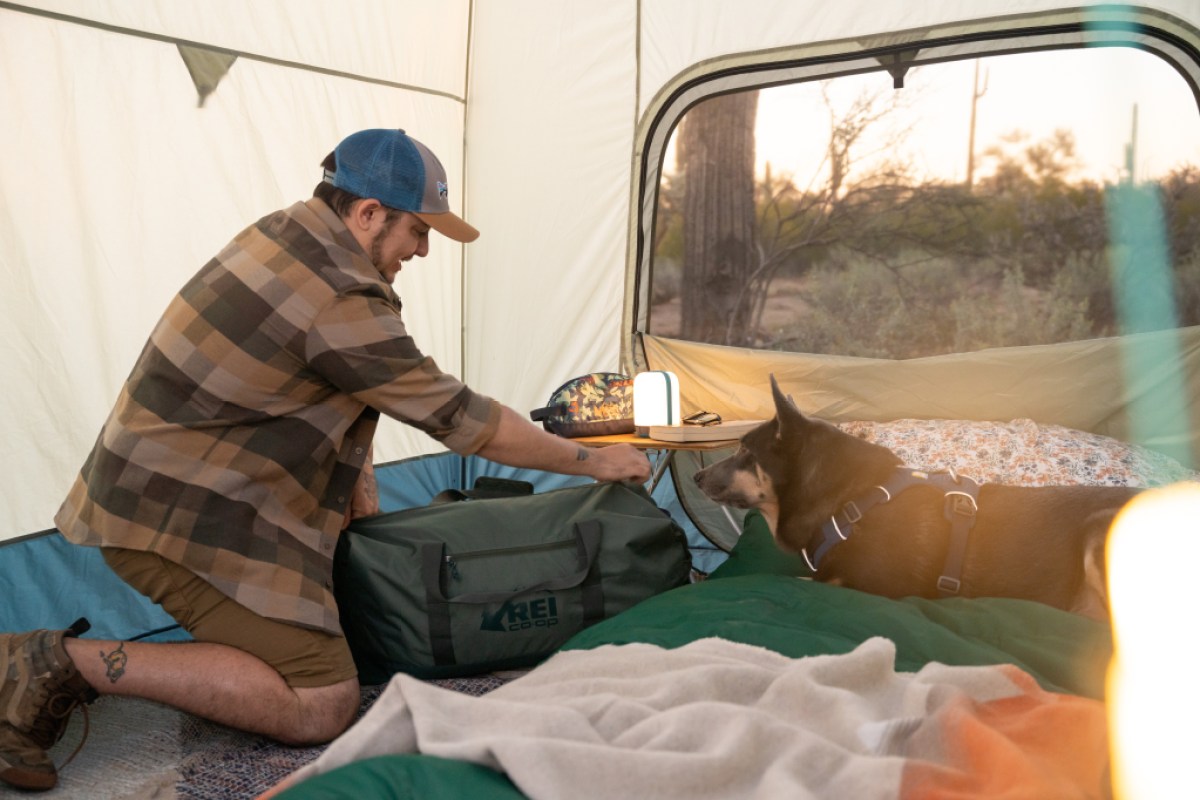
Chances are, you probably bring roughly the same gear with you every time you camp, so having one master list for any type of trip will make it easier to get everything gathered and ready. Our Camping Checklist gives you the option to check off what you need and ignore what you don’t: No extra packing-specific app necessary. If you’re someone who likes the tangible satisfaction of crossing things off, we include a downloadable PDF for you to print, laminate and use dry-erase markers with for reuse.
Store your camping gear in one place.
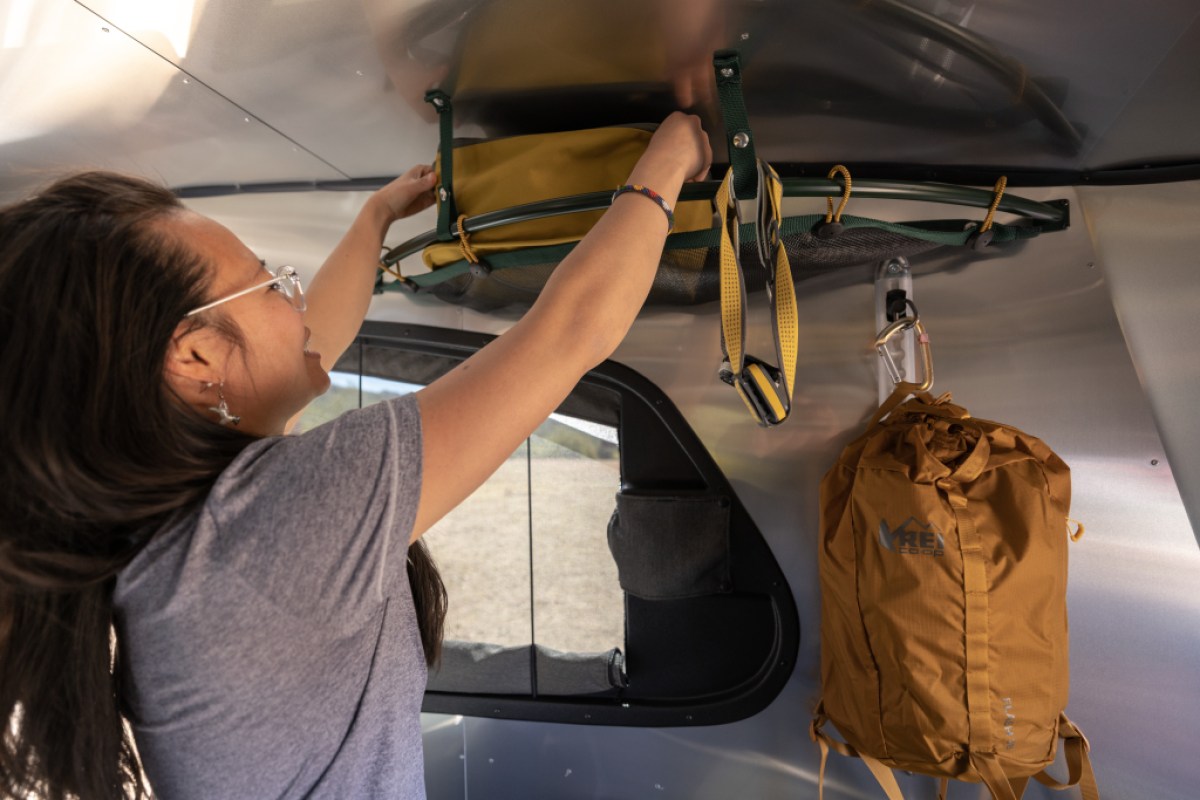
Are your hiking boots and poles in the garage? Do you store the backpack and tent in the basement? Maybe your backcountry kitchen items and camp chairs live under the stairs? Save yourself from last-minute scrambling (and the considerable frustration that ensues) by storing your camping accouterments in one part of your home. On that note…
Create separate bins for your favorite fun-tivities.
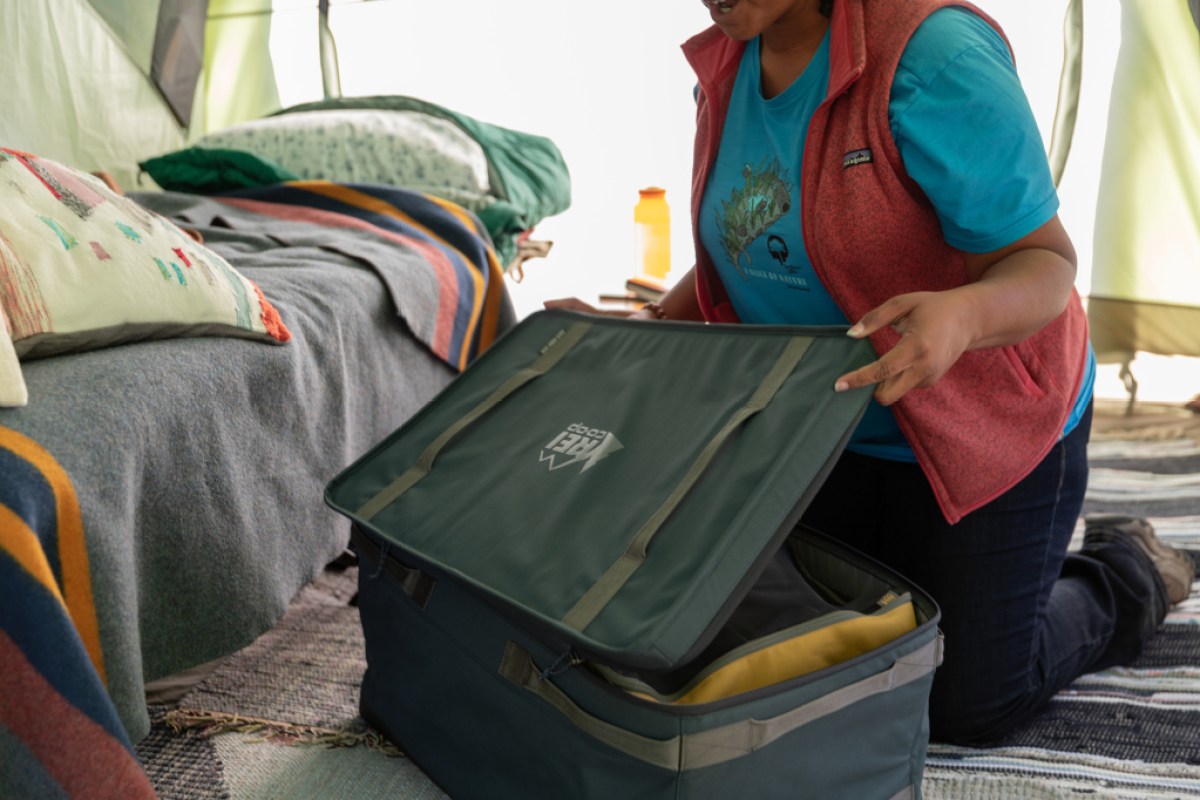
Many frequent campers have adopted the “find a bin and throw it in” tactic for their various adventure-filled activities. Invest in a few plastic totes (or, if you’re into versatile gear storage, pair up your REI Co-op Pack-Away Bin and Pack-Away Cubes) and assign each a purpose: car camping gear in one, backpacking gear in another, etc. We also recommend water-resistant bins with a tight seal so that you can throw them on a hitch rack or leave them outside at your campsite (as long as there’s no food in there for wildlife to get into). Consider taping a list of the bin’s contents on its exterior so you know at a glance what’s inside when you go into the garage, basement or under-the-stairs storage area to find it.
Keep dehydrated meals on hand.
Having a ready stash of grab-and-go meals will make getting out the door so much easier. You probably won’t be camping for too many nights on your last-minute trip, so you don’t have to keep multiple days’ worth of food on hand—just a couple meals to get you through (like Thai Curry or Chicken Pho from GOOD TO-GO). Pro tip: Store your yums in the kitchen or in mice-proof containers if you’re keeping it with the rest of your camping stuff. Trust us on this one.
Rent (or borrow) gear you don’t already own.
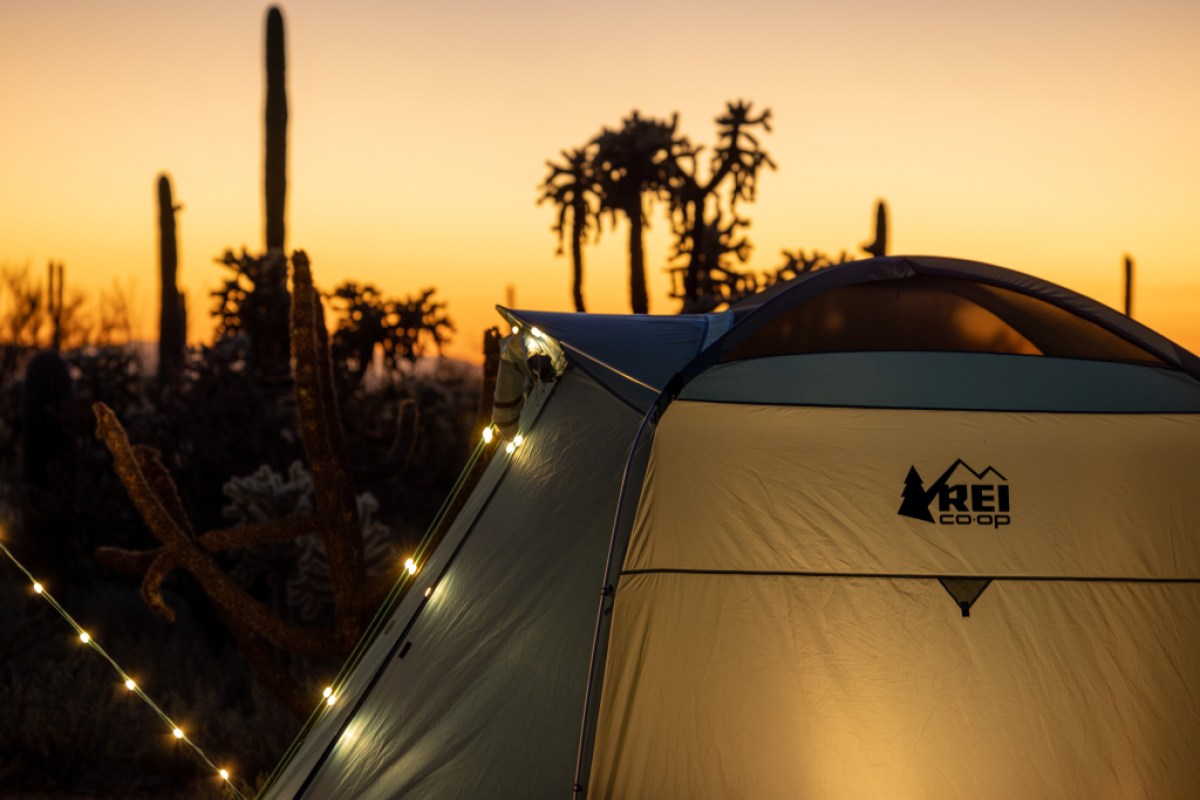
Not sure you’ll use that bear canister again? Don’t have room to store a canoe long-term? Look into gear rental options from local outdoor retailers. REI Co-op, for example, offers numerous items for short-term rental, including activity-specific kits. Or, if your buddy invited you on this spur-of-the-moment opportunity, ask if they have the items you don’t to prevent having to rush into buying decisions. Whether you rent or borrow, though, just make sure to clean the gear before you give it back. Which leads us to our next tip…
Clean your gear when you get home.
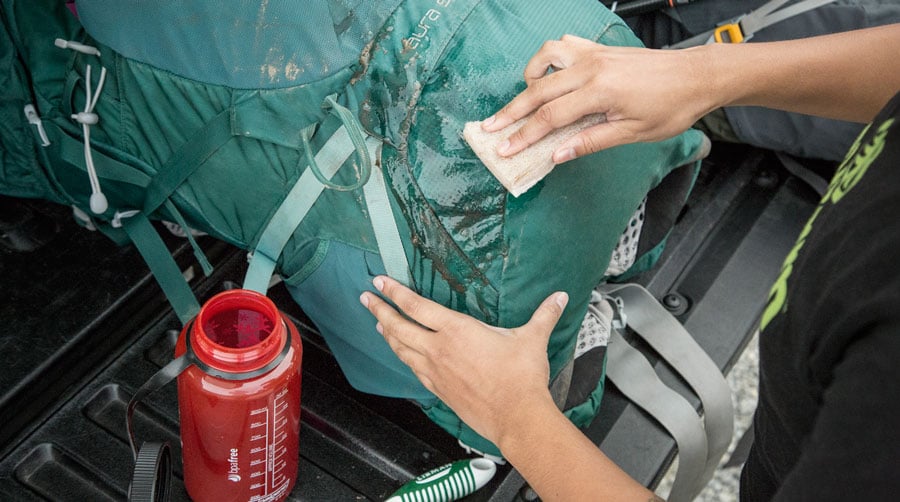
Hosing off your tent, setting out soggy shoes to dry and running your camp kitchen utensils through the dishwasher probably aren’t the first things you want to do when you return from a camping trip. Do it all anyway. Washing and readying gear for its next adventure—and then putting it away in that handy, activity-specific bin—will streamline getting out the door and into the wild next time. (You can also check out our Care and Repair tips for maintaining your gear.)
Remember that last-minute camping is better than not camping at all.
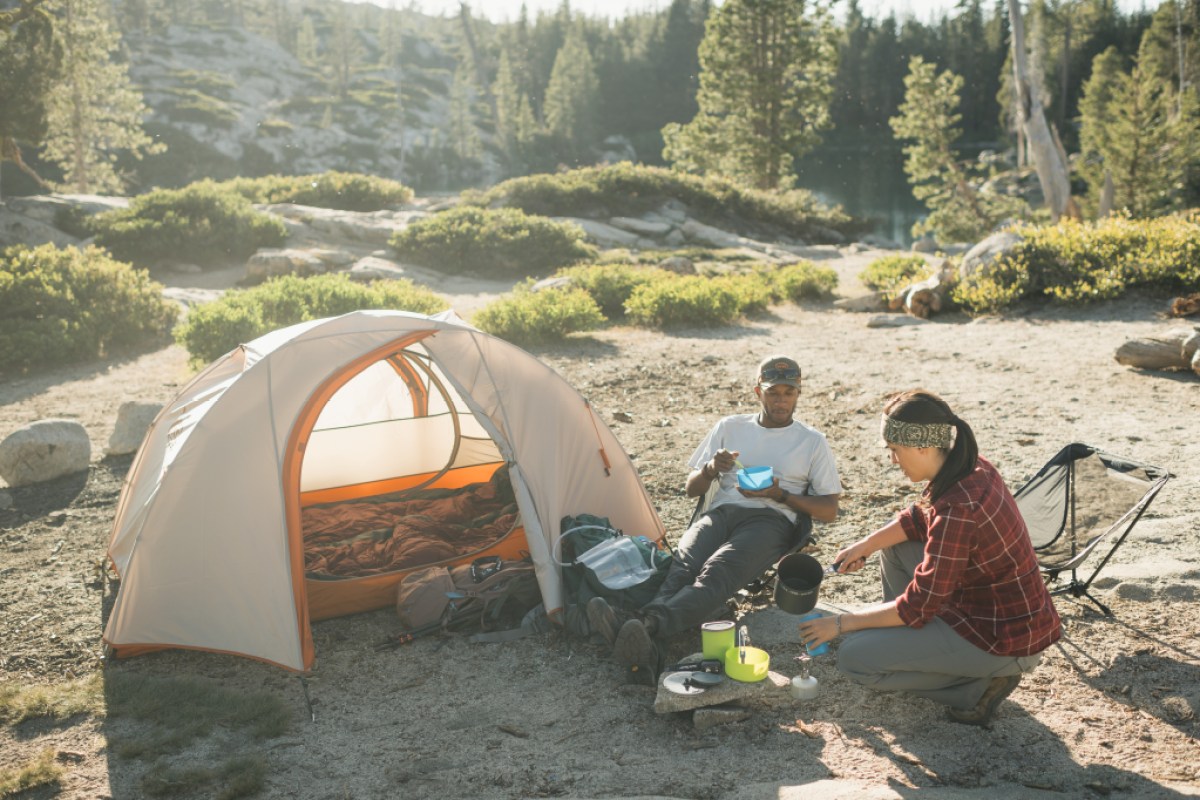
Doing things last-minute typically means you’re introducing the element of chance—and probably some less-than-ideal occurrences—into the equation. Always take necessary safety precautions like checking the weather, carrying the ten essentials and making sure someone at home knows where you’ll be, but do your best to embrace the smaller uncertainties and annoyances. It’s often the outdoor adventures that go slightly awry—forgetting utensils and having to eat with your fingers, or cramming three people into a two-person tent—that make the best stories around future campfires.

